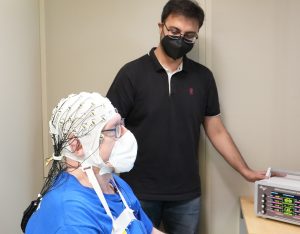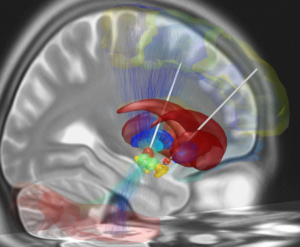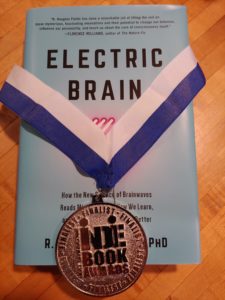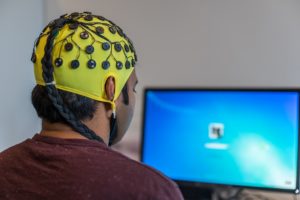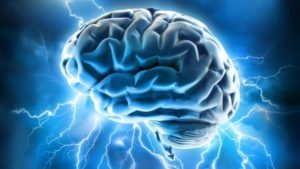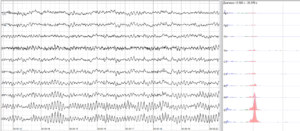Posts Tagged ‘brainwaves’
Rhythmic Electrical Brain Stimulation Improves Memory in Elderly People
On Monday, Neuroscientists at Boston University published a new approach to improve memory in elderly people. “This is an entirely different approach,” Robert Reinhart, who led the study, said in a press conference announcing the findings. The method uses specific frequencies of weak electrical current applied to the scalp at appropriate spots to target brain circuits…
Read MoreBrainwaves Reveal IQ
What intelligence is and how to measure it are thorny questions. If the brain’s information processing power could be measured directly with medical instruments, then the problematic assumptions, cultural biases, and pitfalls of IQ tests could be avoided. Moreover, direct measurement of the brain’s information processing power could reveal how specific brain circuits boost intelligence…
Read MoreTreating Depression by Brain-Implanted Electerodes–New method raises old questions
“I just laughed out loud,” Sarah said describing the first time doctors stimulated electrodes implanted in her brain. “That was the first time I spontaneously laughed and smiled in five years.” Major depressive disorder is a serious, life-risking condition that can be difficult to treat. Sarah had suffered severe depression for years, which was not…
Read MoreElectric Brain Wins Two Book Awards
I am honored that my new book Electric Brain has received two awards. It just received the Gold award for 2021 in the category of Science Books from the Independent Publisher Awards (IPPY Awards). “The IPPY Awards reward those who exhibit the courage, innovation, and creativity to bring about change in the world of publishing.”…
Read MoreMind Control–The reality of controlling the mind through brain implants and energy beams, and how BCI really works
The raging bull locked its legs mid-charge. Digging its hooves into the ground, the beast came to a halt just before it would have gored the man. Not a matador, the man in the bullring standing eye-to-eye with the panting toro was the Spanish neuroscientist José Manuel Rodriguez Delgado, in a death-defying public demonstration in…
Read MoreUntangling Controversy over Brainwaves in Autism
Brainwaves are cited as a biological basis for autism, an objective method to diagnose it, and a treatment through EEG-guided neurofeedback. Yet each of these intersections between brainwaves and autism is controversial. These mysterious waves of electromagnetic energy radiating out of the human brain are interrelated with autism, and there is tremendous potential for brainwave…
Read MoreRomance Rides on Brainwaves
Love. It’s what makes the world go round. Across cultures and throughout the span of human existence, the quest to find the right romantic partner is the hub of life. The mysterious attraction that draws two strangers together romantically is unspoken and seems to burst forth automatically from somewhere deep below our conscious deliberation. Romantic…
Read MoreGamma Waves in the Brain–Fumes or Fundamental?
SAN DIEGO—The most fundamental question of how information is coded and processed in the brain is being re-examined, and the controversy drew an overflow crowd of neuroscientists to participate in an intense debate at the Society for Neuroscience Annual Meeting in San Diego. The textbook explanation that information is coded digitally by the firing rate…
Read MoreMuscling Up Brain-Computer Interfaces
The internet is abuzz with reports of neuroscientists linking the human brain to computers to eliminate the clickety keyboard and empower us to control personal electronic devices or manipulate robotic arms. But the science beneath the sizzle doesn’t support all the sensational claims, and there are significant practical hurdles. Unless you have a medical condition…
Read MoreBrainwaves in people addicted to internet gaming are different
Researchers reported this week in the journal Scientific Reports, that they are able to identify differences in brain connectivity in people who are addicted to internet gaming. Most appropriately, scientists are able to do this by tapping into the brain’s Wi-Fi-like electrical signals radiating through gamer’s skulls. After sampling only 10 minutes of brainwave…
Read More